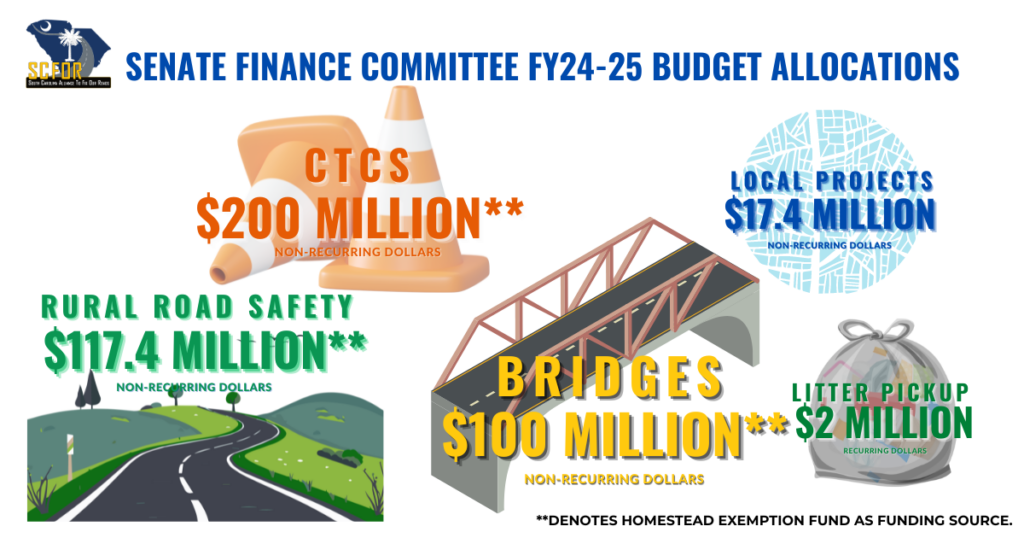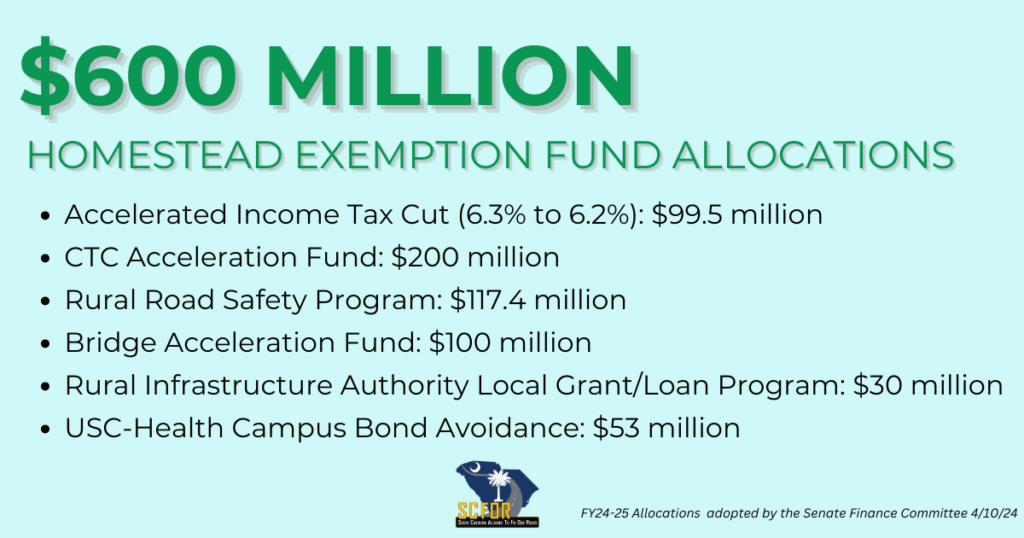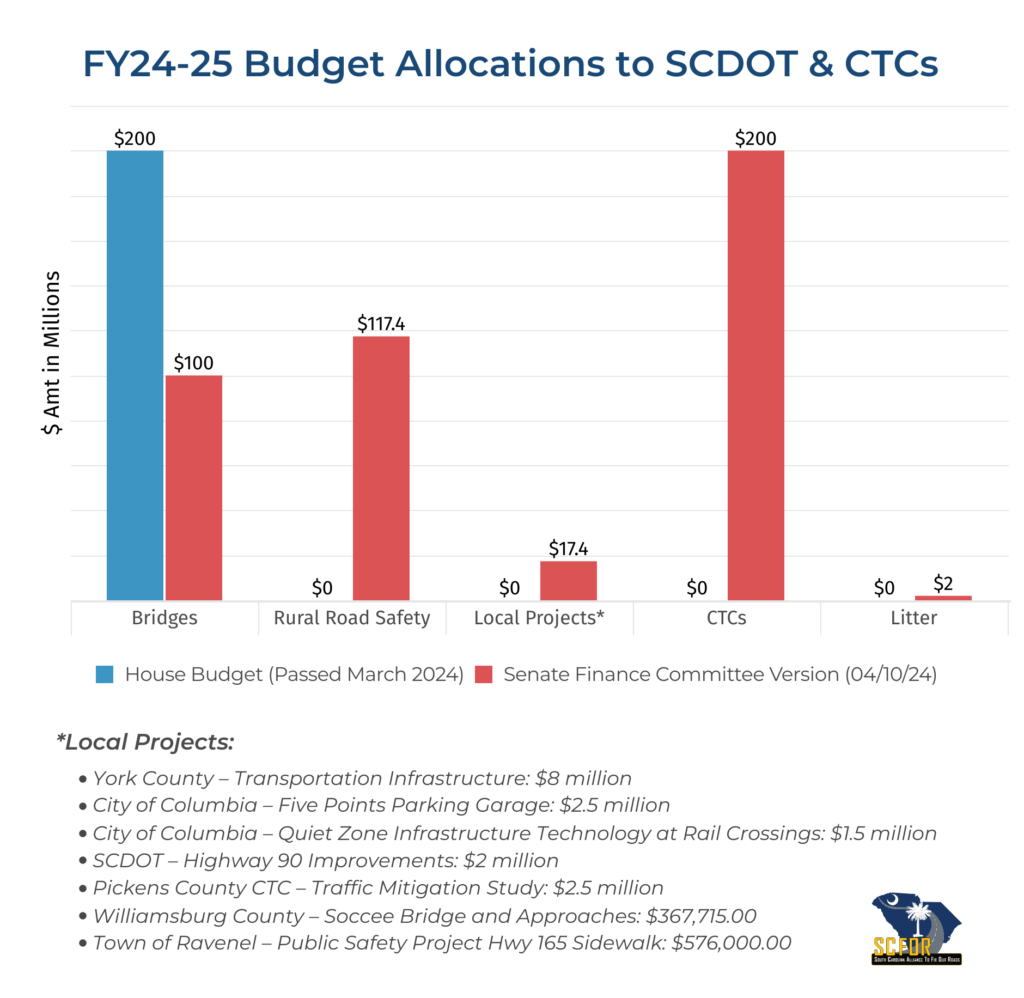The Senate Finance Committee chaired by Senator Harvey Peeler (R-Cherokee) completed their work on the FY24-25 budget this week, drafting the Senate version of the spending plan that will be debated on the floor beginning April 23.
Senators made significant investments in roads and bridges, allocating roughly $435 million in one-time dollars to bridges, CTCs, rural road safety, and local/earmarked projects. Of those allocations, $417.4 million comes from the Homestead Exemption (HEX) Fund.
Senator Darrell Jackson (D-Richland), Chairman of the Transportation & Regulatory Subcommittee, applauded the subcommittee’s work and noted that they recognized the need to invest in roads and bridges.

Since January and throughout budget deliberations, we have heard a lot about the Homestead Exemption (HEX) Fund, which was established in 2006 when the state sales tax increased from 5% to 6% and property taxes on owner-occupied homes were cut in half.
Since the pandemic, the fund has grown to $600 million and essentially has built up what is considered a “surplus,” making it a major topic of discussion for the FY24-25 budget. You will recall:
- The Governor called on the legislature to allocate $500 million in HEX funds to the state’s bridge program in his Executive Budget.
- The House opted to utilize $500 million of the HEX funds for a one-time property tax reduction for homeowners under the interpretation that dollars must be used for property tax relief.
Senators took a page from the Governor’s playbook regarding the use of the funds and didn’t limit them to property tax relief. Instead, they opted to allocate the $600 million across various areas, including accelerating income tax reductions and transportation infrastructure.

The use of HEX funds will be a key area of focus as the budget moves forward, given that these funds are the primary revenue source for the infrastructure funding included in the Finance Committee’s budget.
SCFOR applauds the Finance Committee for prioritizing infrastructure investments and raising the bar on how much money could be invested in infrastructure this year.
We will continue to press for $200 million for bridges (as we have since January) and support additional investments to boost safety and county road programs.
There is also a chance that legislators may have additional revenue to work with as budget deliberations progress. Should the Board of Economic Advisors (BEA) announce additional revenues available for allocation in May, this would certainly impact budget negotiations between the House and Senate.
Senators will debate the budget on the floor the week of April 23. Once the budget passes the Senate, it will return to the House, and they will have the opportunity to amend it and return it to the Senate. (As with every budget, we expect a conference committee will be appointed to sort out differences in May/June.)
The budget process is just getting started. The good news is, the emphasis on infrastructure is clear, and it will ultimately come down to how revenue estimates and tax cut provisions shake out in the coming weeks.


